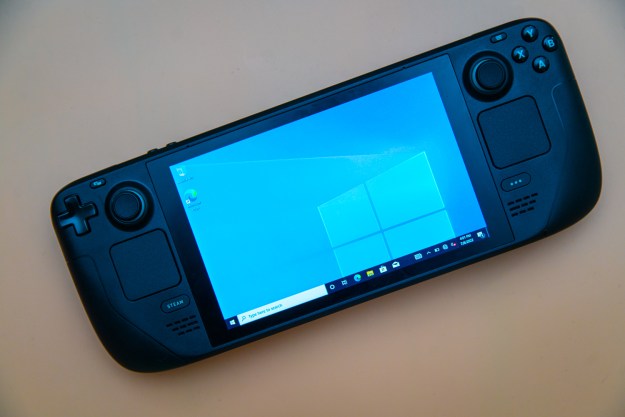
Steam’s opt-in hardware and software survey takes monthly, anonymous readings from participating systems, and Valve uses the information to guide development and product offerings. It doesn’t cover every gaming machine, but does offer a decent cross section of the community.
The 64-bit Windows 7 is still the most popular operating system by a wide margin, down one percent to a total of 44.91. The 64 bit version of Windows 8.1 comes in second with 31.85 percent of systems — up .63 percent from the previous month. Down a bit further, 32-bit Windows XP is trending downward to 2.85 percent, and 64-bit Windows 10 pulls in right behind it with 2.21 percent.

The intriguing aspect of these results isn’t the growth in Windows 8.1. Retailers and manufacturers were pushing newer Windows 8 machines out the door for the last month, either using the free Windows 10 offer, or in anticipation of Windows 10 systems. Instead, Windows 10 seems to take the biggest chunk out of the Windows 7 market share.
If you include the 32- and 64-bit versions of Windows 10, updated gaming machines represent a 2.30 percent total of all systems in the Steam survey. Only a combined 3.23 percent of machines run any version of Mac OS X 10.6 or newer, and only 0.89 percent of systems run Linux, so a little over 2 percent is a stronger than it sounds.
It’s also important to note that Windows 10 has only been officially available since the July 29, and it’s also not clear what the total involvement numbers are for the Steam survey. Regardless, gamers and PC enthusiasts are usually among the first to upgrade when a new operating system comes out, so it’s likely August’s results will show a similar movement towards DirectX 12 and Windows 10.
Editors' Recommendations
- Scores of people are downgrading back to Windows 10
- Windows 11 tips and tricks: 8 hidden settings you need to try
- Microsoft Edge is slowly becoming the go-to browser for PC gamers
- Microsoft may fix the most frustrating thing about Windows updates
- 7 beloved Windows apps that Microsoft has killed over the years


